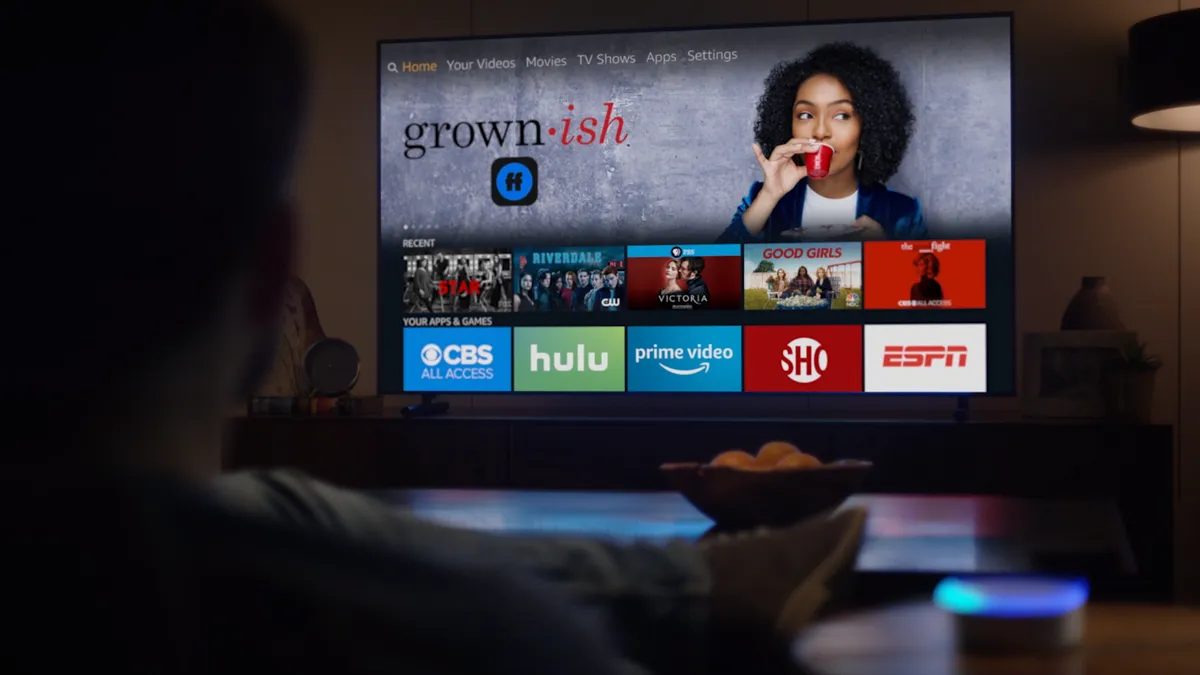UPDATE: April 1, 2020: Rubicon Project and Telaria completed their merger following stockholder approval, creating the largest independent sell-side platform in advertising, according to a press statement. The deal closed earlier than an initial July 2020 projection, and the combined company will take on a new name in the coming months.
Dive Brief:
- Rubicon Project and Telaria, two publicly traded ad-tech firms, today announced a stock-for-stock merger that will create the largest independent sell-side platform in the advertising industry, per details shared with Marketing Dive. The new combined entity, which does not yet have a name, intends to offer a single platform for transacting connected TV (CTV), desktop display, video, audio and mobile ad inventory.
- In a press release, the deal was positioned as helping Rubicon Project, a global advertising exchange, and Telaria, which creates software solutions for video publishers, to capitalize on the booming market for CTV. Telaria chief executive Mark Zagorski in a statement said that it also provides an alternative to "walled gardens," a swipe at large digital advertising platforms like Google and Facebook.
- Michael Barrett, president and CEO of Rubicon Project, will become chief executive of the combined company upon the deal's close, which is expected in July 2020. Zagorski will be president and chief operating officer and Rubicon Project CFO David Day will retain his role. Telaria and Rubicon Project's aggregate revenue for the 12 months ended in September was $217 million, a 32% year-on-year increase.
Dive Insight:
Rubicon Project and Telaria's merger is another indicator that CTV is climbing to the top of the agenda for marketers and their ad-tech partners, particularly those looking to break through outside of the Facebook-Google duopoly. The completion of the deal comes as the coronavirus pandemic roils the economy, leading marketers to pull back on spending. However, video channels like CTV, which has become a key driver of Telaria's business, are experiencing a spike in viewership as consumers stay sheltered in place.
CTV, essentially internet-connected TV, has exploded in popularity as consumers cut the cord on traditional cable and broadcast in favor of streaming services and digital portals offered through providers like Roku and Amazon Fire TV. Researcher eMarketer forecast that CTV media spending jumped 38% to $6.94 billion in 2019. The space remains nascent and highly fragmented, but others have moved quickly to try and establish more robust means of capturing revenue through the channel.
TV maker Vizio last year introduced Vizio Ads, a business unit selling premium display inventory across the the company's SmartCast CTV platform. Amazon in the summer also moved to open up Fire TV inventory to third parties for the first time, partnering with The Trade Desk and Dataxu. But recently, the e-commerce giant dropped Dataxu from its demand-side platform, as reported in AdExchanger — likely the result of the ad-tech firm being acquired by Fire TV's chief rival Roku, which is a market leader.
In other ways, Rubicon Project and Telaria's merger fits into the broader trends of an ad-tech sector that is seeking out business models that can survive in a market dominated by Facebook, Google and, increasingly, Amazon. Rubicon Project, in particular, has had a somewhat rocky road on the public markets, and in 2017, was reportedly exploring strategic options, including a potential sale.
In the announcement of the merger, executives nodded to the image issues that have impacted Big Tech companies as data privacy scrutiny continues to command the limelight.
"Our businesses are highly complementary, and when combined, are a powerful, strategic alternative to the walled gardens, which have been frustrating both buyers and sellers due to their lack of transparency, innovation bottlenecks, and conflicted business models," Telaria's Zagorski said in a statement.
"The two companies will provide more technology resources, a broader geographic footprint and deeper financial assets to attack the growing opportunity created by the shift from linear viewing to CTV to the benefit of our customers and in support of a thriving open internet," he added.
Similar ad-tech deals in 2019 included CTV startup Innovid acquiring the display advertising Herolens for a reported $30 million in equity and cash in September. Like the Rubicon Project-Telaria merger, the move was pitched as meeting a desire among advertisers for a "global independent alternative" to digital's dominant players.















